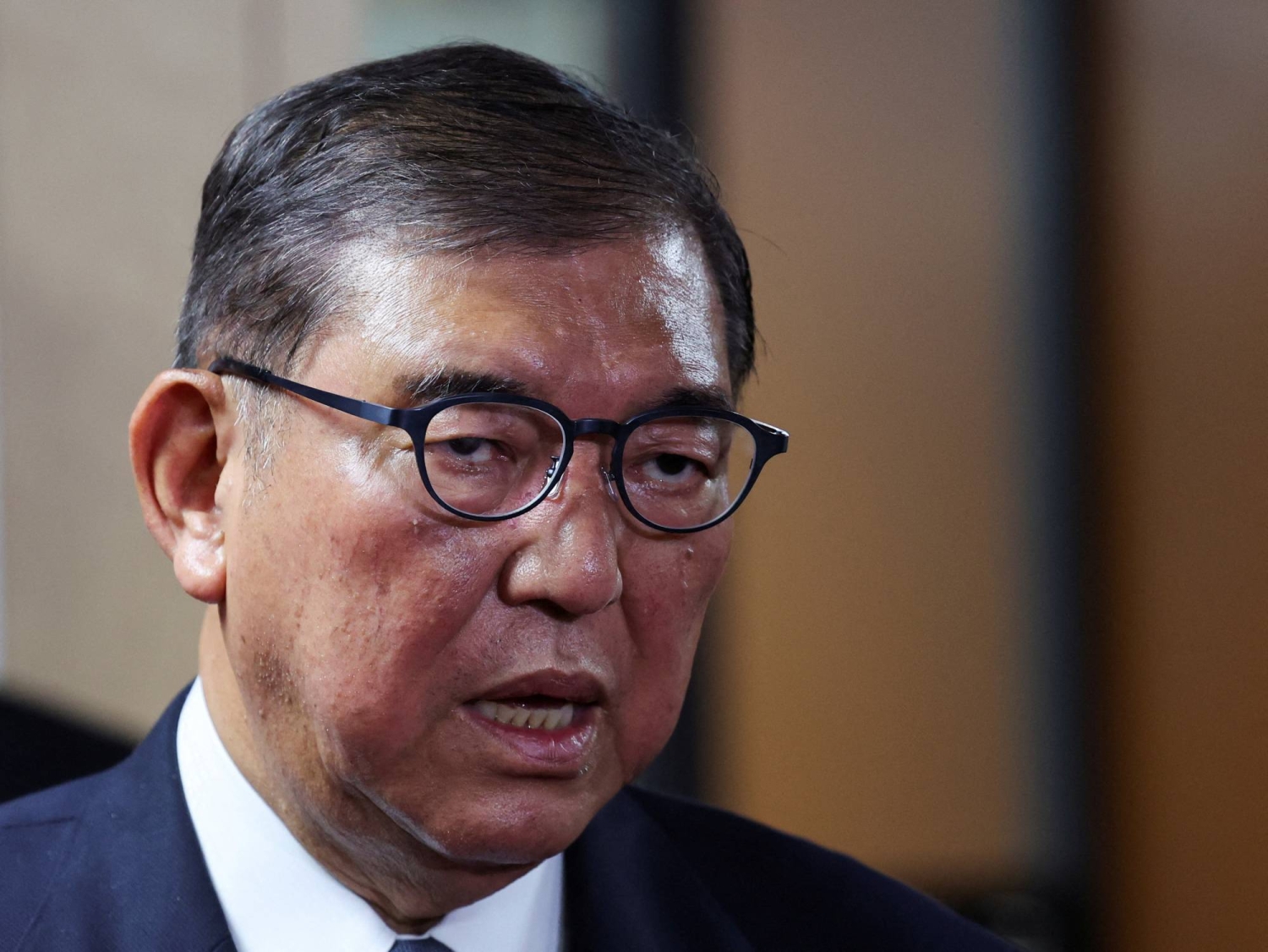Prime Minister Shigeru Ishiba said Tuesday that Tokyo is considering playing a role in security guarantees being offered to Kyiv by a coalition of nations as peace talks with Russia to end its war in Ukraine gain steam.
“We'll watch the ongoing discussions closely, and while carefully considering what Japan can and should do — including various legal and capability aspects — we'll play an appropriate role,” Ishiba told reporters.
Ishiba, who spoke hours after U.S. President Donald Trump, Ukrainian leader Volodymyr Zelenskyy and top European leaders met at the White House in Washington for peace talks, characterized the growing momentum as “very meaningful.”
But the prime minister, singling out Russia for killing civilians in Ukraine, also appeared to tamp down expectations of the type of quick peace deal being sought by Trump.
“Achieving a fair peace is an extremely difficult task that will take time,” Ishiba said.
Earlier, NATO chief Mark Rutte said that the “coalition of the willing,” which groups 30 nations backing Ukraine, had been working for months to craft a comprehensive package of security guarantees to deter Russian leader Vladimir Putin from an attempt to re-invade his neighbor under any hypothetical peace deal.
“Over the last couple of months ... a group of now 30 countries, including Japan and Australia, are working on this concept of security guarantees,” Rutte told Fox News on Monday after taking part in the talks in Washington. Japan joined the grouping in March.
Tokyo has been watching the flurry of diplomacy nervously, with the precedent set by any hasty peace deal likely to have broad ramifications for Japan and Asia. Tokyo has been a strong proponent of maintaining the rules-based global order while condemning unilateral attempts to change the status quo by force — a stance widely seen as aimed at China, albeit obliquely.
Russia’s invasion of Ukraine has stoked concern in Japan that military powerhouse China — with its eye on democratic Taiwan — could take a page from Moscow’s playbook and invade the island that it claims as its own.
On Monday, Ishiba said that in addressing the war, leaders must "ensure that it does not undermine global security and the international order, including that of the Indo-Pacific region.”
Japan in June last year became the first non-NATO country to ink a security accord with Ukraine, signing a 10-year deal that promised continued humanitarian and nonlethal aid, and bolstered support for the war-torn country's reconstruction.
One of the biggest surprises to come out of Monday’s meeting in Washington was Trump’s pitch of a one-on-one summit between Zelenskyy and Putin that would be followed by a trilateral gathering involving all three.
Although it remains unclear if those meetings will materialize, Zelenskyy also secured a key goal in winning Trump’s commitment to the U.S. participating in security guarantees as part of any peace deal, while reserving discussion of territorial exchanges for any direct talks with Putin.
Rutte said that while the grouping needed more time to discuss the details of the security guarantees, “for Ukraine to consider what to do next when it comes to territory, it is important to also know what the situation will be with the security guarantees to prevent Vladimir Putin from ever trying again to invade parts of Ukraine.”



















With your current subscription plan you can comment on stories. However, before writing your first comment, please create a display name in the Profile section of your subscriber account page.